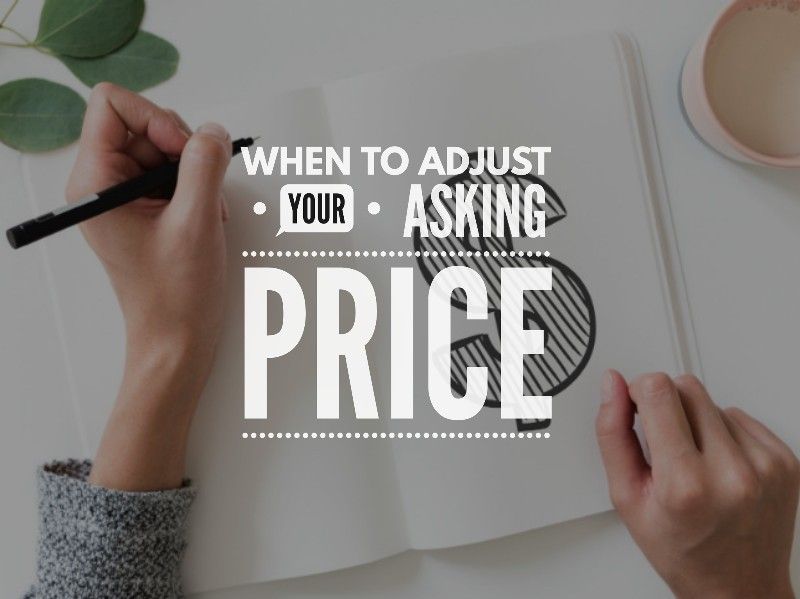
When to adjust your asking price
It's natural to want to maximise the price and you certainly don't want to let it go cheap. This is where expectations of the market start to influence strategic decisions.
When you first put your home up for sale, you'll have a target price in mind. A 'hope-to-get' price. This is likely informed by appraisals from real estate professionals, online value estimates, and recent nearby sales of similar properties.
But sometimes, the market doesn't play ball. You might be sitting there after 3-4 weeks, wondering why you haven't had any offers? Wondering whether to keep holding out for your 'hope-to-get' price? Or bite the bullet and meet the market?
In this article, we'll help you decide for yourself if it's time to adjust your asking price.
Are your expectations still accurate?
Markets can change quickly. Interest rates go up, bank criteria get tougher, and more properties come on the market. All these factors can affect what buyers are prepared to pay for your home. So as a seller, it's important to keep reflecting on what price you are expecting to understand if it's still in line with market conditions.
If you aren't getting any action on your property after weeks on the market, it's highly likely your expectation or asking price is too high.
'But I hate losing...'
It's natural to feel like you are giving up something when you drop your price expectation, but you can't lose something that isn't there in the first place. You can only deal with what the market is serving up right now. Stewing over the price you would have got if you sold 3 months ago is a waste of time. You aren't on the market 3 months ago, you are on the market now.
The question to focus on is:
"Does the current, realistic market value of our property allow us to move on and do what we want to do?"
If it would, make the adjustments to your price expectation now and get moving.
If not, you can wait it out for a fluke high price (they do happen but it's rare) or take your home off the market and make other plans.
Play the what-if game...
Another exercise that can help with managing expectations is to consider what your home would have been worth 12 months ago. For most properties, that figure might be similar to what you could sell for today.
Sellers who sold 12 months ago would likely have been ecstatic at the time, selling in a rising market, getting a record price. But now, because the market has gone up and come back down, current sellers feel like they are getting a raw deal, missing out on the peak of the market.
Try to keep in mind that timing the market is ridiculously hard. It's only a tiny fraction of sellers that would have been lucky enough to sell right at the peak of the price rise. And even then, they likely had to buy at the peak of the market too.
So don't wish for that peak market price, because if you had sold then you might have ended up paying top dollar for your next home (which could now be worth significantly less).
Instead, focus on what's possible now, and whether that allows you to achieve your goals. If so, get your asking price in line with the current market and get moving.
Ask yourselves: If we were sitting down today with an unconditional, cash offer. What would we accept?
Once you know that number, set your asking price as close as possible and let the market know.
Keep reviewing your price expectation using the questions in this guide every 2-3 weeks until you either find a buyer or decide to stay put.
By Jason Penny
Proppy's Chief Thinkasaurus